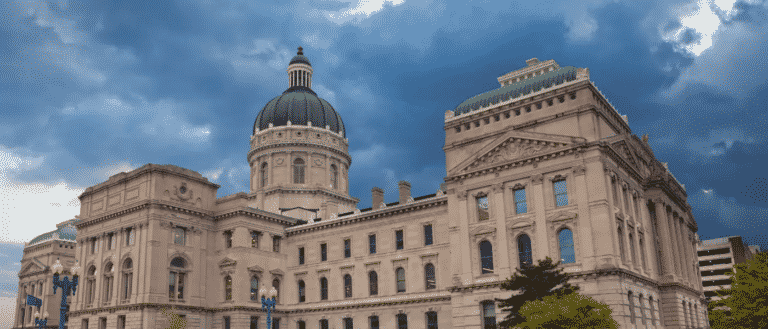Missouri Sports Betting Bills: Two Competing Efforts Emerge

Missouri is looking increasingly likely to legalize sports betting one way or another. In just the last month, two possible avenues for legalizing sports betting have materialized in the Show Me State.
One of those avenues is the result of a concession lawmakers made to casino interests in return for getting them on board with an expansion of video lottery terminals to locations other than casinos. The other is a bill introduced just last week that calls for Missouri to legalize, regulate and tax sports betting.
Both bills are contingent upon the Supreme Court striking down the Professional and Amateur Sports Protection Act (PASPA) that currently blocks states from legalizing sports betting. The Supreme Court is currently considering New Jersey’s challenge of the constitutionality of PASPA and is expected to issue a ruling some time this spring.
Sports Betting Added to Video Lottery Terminal Expansion Bill
The older effort stems from a piece of video lottery terminal legislation introduced in January. SB 767, also known as the “Missouri Video Lottery Control Act,” seeks to allow up to five video lottery terminals to be placed in taverns, convenience stores and other locations. Benevolent organizations such as VFW posts would be able to install up to ten such machines.
According to one analysis, the bill would result in as many as 20,000 new video lottery terminals going up across the state. Those machines could bring in upwards of $127 million in new revenue for the state. Not surprisingly, estimates such as those are alarming to state casinos that have until now held a monopoly over slots-style gaming.
The bill’s sponsor, Senator Denny Hoskins, agreed in February to amend the bill to include text legalizing sports betting as a concession to state casinos. According to the St. Louis Post-Dispatch, the sports betting measure could generate up to $60 million in new revenues for existing casinos.
The newly-added bit about sports betting is short on details other than calling for a total of 14% in taxes and fees on revenue and authorizing the Missouri Gaming Commission to authorize sports betting if the federal prohibition is ended. In that case, the bill calls on the Commission to “promulgate regulations establishing standards and procedures for wagering on sporting events.”
Newest Bill for Legal Sports Betting in Missouri
Just last week, Senator Hoskins introduced a second bill dealing specifically with sports betting. This one offers more details and provides us with a clearer look at how some Missouri lawmakers are approaching the issue.
SB 1013 calls for sports betting to be legalized in Missouri in the event the Gaming Commission “determines that federal law does not prohibit” the activity. In other words, this one is also contingent upon the Supreme Court ruling in favor of New Jersey or the federal prohibition being ended by other means.
If SB 1013 takes effect, it would allow sports betting to take place at riverboat casinos. The bill would also legalize online sports betting in Missouri for state residents who visit a licensed sports betting facility in person to register an online wagering account.
The most controversial aspect of the bill is its inclusion of a 1% sports integrity fee that would be applied to all betting handle. Existing sportsbooks in Nevada have been shown to only earn net profits equal to about 4% of total bets placed. Thus, a 1% integrity fee is the rough equivalent of a 25% tax on net revenue.
The Royals, Cardinals and MLB all support the integrity fee, but the Royals have voiced concerns that the proposed regulations do not go far enough to protect the integrity of the game. Royals senior vice president Kevin Uhlich put it this way:
“As noted, the right for a casino to profit on sports betting must come with serious responsibility and robust, air-tight requirements, as the stakes are simply too high.”
In addition to the sports betting integrity fee, operators would also be on the hook for a $10,000 license application fee, a $5,000 annual renewal fee and 14% in combined taxes and fees applied to gross adjusted revenues.
Licensed sports betting operators would then be required to take reasonable steps to prevent employees and family of employees from betting on sports. The bill also prohibits anyone associated with a sporting event (players, coaches, etc.) from betting on events overseen by that sport’s governing body. Operators must also offer voluntary self-exclusion services for customers who need help stopping.







